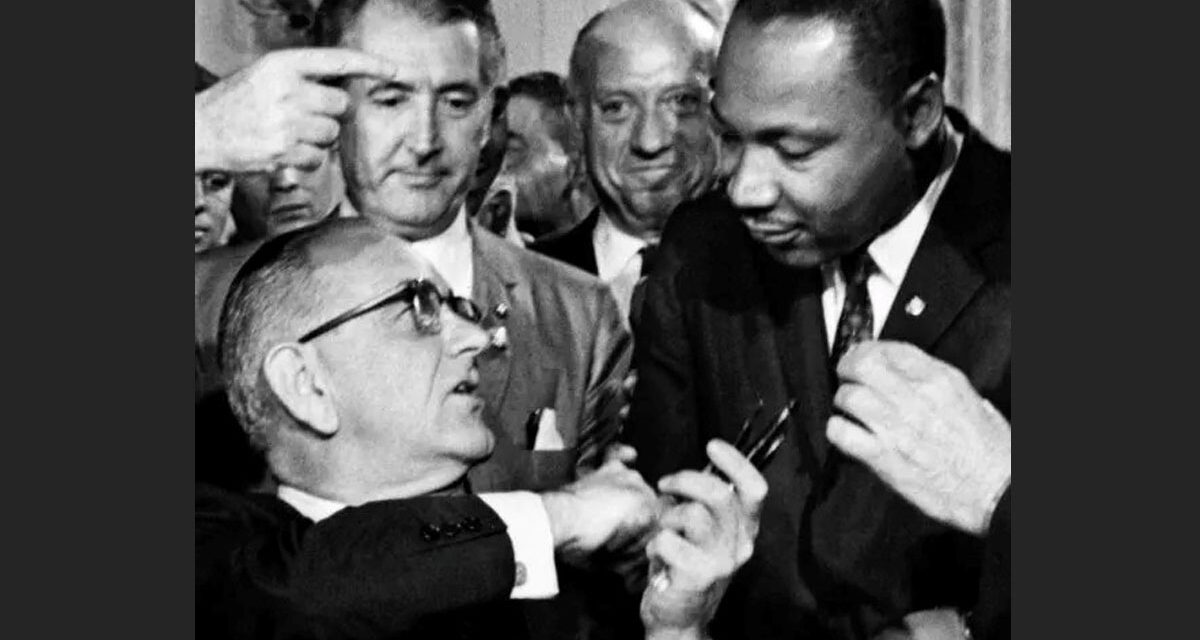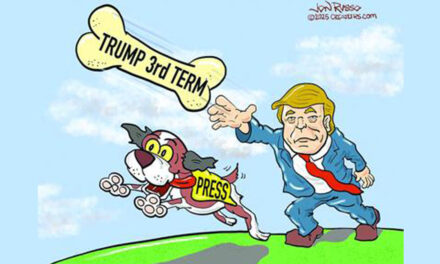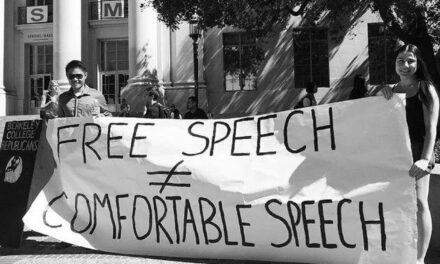
Black History Month (Part 7): The conversion of Lyndon Johnson

Up to the assassination of President Kennedy, it could be said, without refutation, that Lyndon Johnson was a deeply committed southern racist Democrat. As late as the early 1960s, the then Senate Majority Leader was opposing every piece of civil rights legislation introduced in Congress – mounting filibusters against them. He even changed the Senate rules to make it easier to filibuster. Throughout his personal life, he spoke disparagingly of Blacks and was once described as “the connoisseur of the n-word”.

It is equally true, however, that – like Saul on the road to Damascus – Johnson had a remarkable conversion. He not only acquiesced to bold civil rights legislation but championed its cause – using his full power and influence. Instead of being a loyalist to the Democrats’ powerful racist anti-integration faction, Johnson worked against them. Instead, he aligned with congressional Republicans to end a Democrat filibuster and pass the 1964 Civil Rights Act and the 1965 Voting Rights Act.
Here are excepts from my book, “Who Put Black Americans in That PLACE? The Long Sad History of the Democratic Party’s Oppression of Black Americans … to this Day”, describing Johnson’s remarkable role in the passage of civil rights legislation.
“Lyndon Johnson (1963 – 965)
The public was in shock not only by the assassination of a president but from the jarring shift in leadership from the charisma and elegance of Camelot to the hard scrapple crudeness of rural Texas. It was as if the White House took a leap back in time. Johnson was savvy enough to recognize the public perception. The Kennedy family and friends bitterly despised the man who took Kennedy’s office and legacy. Johnson’s major accomplishment would be the passage of the Kennedy Civil Rights Act—an accomplishment many leaders in the Black community doubted Kennedy himself would have achieved or even would try to achieve.
Prior to his ascendency to the presidency, Johnson was among the most adamant of White supremacists and pro-segregationists Democrats in America. In a speech in Austin, Texas in 1948 Johnson said:
This civil rights program about which you have heard so much is a farce and a sham; an effort to set up a police state in the guise of liberty. I am opposed to that program. I fought it in the Congress. It is the province of the state to run its own elections. I am opposed to the anti-lynching bill because the federal government has no business enacting a law against one kind of murder than another… If a man can tell you who you must hire, he can tell you who not to employ. I have met this head on.
Johnson largely held those views until he became president, and he aligned with Senate Republicans, headed by Illinois’ pro-civil rights Republican minority leader Everett McKinley Dirksen, to produce some of the most important civil rights legislation of the century. His alliance with the GOP was critical. Without it, the Dixiecrats would most certainly have been able to again use the filibuster to block any civil rights legislation impinging on southern segregationist policies for years to come.
Sophomoric Racism
Johnson personified the ignorant and deep-seeded sophomoric racism of his southern Democrat roots. It manifested often in his private discussions and even in strange ways.
He believed that Blacks were inordinately fearful of snakes. Johnson would place one in the trunk of his car. He would then tell a Black gas station attendant to check something in the trunk. Johnson delighted in seeing the guy jumping around in fear. On one such occasion, it is reported that Johnson narrowly escaped being beaten with a tire iron for his practical joke.
The N-Word
It is likely that no twentieth century president so frequently and so indiscreetly used the word nigger in referring to Black Americans, even when addressing them directly. In writing for MSNBC Online, Adam Serwer said that “Johnson was practically a connoisseur of the n-word.” Even when privately discussing the 1964 Civil Rights Act, he consistently referred to it disparagingly as the “nigger bill.” Despite his later reputation as an advocate of civil rights, those who knew Johnson, even friends, have reported on his many expressions of racial intolerance.
In his memoir, Capitol Hill in Black and White, long time Johnson chauffer, Robert Parker, recalled Johnson asking if he would prefer to be addressed by Robert rather than boy or nigger. When Parker said he would prefer “Robert,” Johnson shot back as if he had sprung a trap:
As long as you are black, and you’re gonna be black till the day you die, no one’s gonna call you by your goddamn name. So, no matter what you are called, nigger, you just let it roll off your back like water, and you’ll make it. Just pretend you’re a goddamn piece of furniture.
Johnson was also a master of “code-switching” or subtly changing one’s normal speech style to fit the audience. Johnson biographer, Robert Caro, wrote that Johnson would calibrate his language by switching between “nigra” and “negra” depending on the regional background of the audience.
Johnson was also a pragmatic man. When he could not defeat the Republican civil rights bills of 1957 and 1960, he used his power as Senate majority leader to water them down—essentially making them less enforceable. He told several of his southern colleagues that in the absence of a weak bill, the Republicans would pass very tough civil rights legislation.”
Despite his long history of racism and opposition to integration, things changed following the Kennedy assassination and Johnson’s ascendency to the presidency. Why Johnson experienced such a miraculous change cannot be fully known – but there are theories.
“Civil Rights Bill of 1964
The ability to pass sweeping civil rights legislation in the 1960s was made possible by a confluence of several events. Both institutional racism and personal prejudices were receding. The last vestiges of America’s institutional racism were found in two area—the Old South and the major cities. Both were largely the exclusive domain of the Democratic Party.
Television brought into every American living room the brutality of the Democrat regimes. Police were seen indiscriminately using water hoses, dogs, clubs, and guns on helpless Black demonstrators. Prior to television, the violent abuse at the hands of the Democrat terrorist organizations and local police were never so graphically seen by the public.
Johnson was feeling the same public pressure that forced his predecessor, President Kennedy, to take up symbolic, lip-service civil rights advocacy. Another major factor was the continuing pressure from Republican members of both the House and Senate, who overwhelmingly supported civil rights legislation and had passed the 1957 and 1960 Civil Rights Acts.
Despite Kennedy’s lack of commitment to civil rights, people viewed the passage of the 1964 civil rights legislation as a tribute to the legacy of the slain president. Ironically, it was unlikely that any civil rights legislation would have been enacted had he lived.
Johnson Becomes an Advocate
For the first time in his life, Johnson saw significant political benefit in championing civil rights. His support of the Civil Rights Bill of 1964 and the Voting Rights Bill of 1965 is mired in controversy as to the true reasons for his conversion. What is clear, however, is that Johnson obviously did abandon his earlier disdain for civil rights legislation. He pushed and he pushed hard to win passage. Speculation regarding Johnson’s switch from strident segregationist to dedicated civil rights activist centers on three theories.
One theory is that Johnson had a fundamental change of heart, that he had come to believe in the justification and necessity for civil rights legislation. It is a theory advanced by those whose goal seems to be to burnish Johnson’s image for contemporary partisan advantage and the longer reach of history.
There is a more pragmatic theory—a variation of the first. It claims that Johnson was advised by several people, including Philip Graham, publisher of the Washington Post, that any hope of reelection to a second term would be derailed by opposition to civil rights.
There is a third more cynical theory: that Johnson recognized the need to keep Black voters in the Democrat party. This partisan pragmaticism was later seen in his Great Society and War on Poverty programs, which he is reported to have told a group of southern senators that his welfare legislation would ‘keep the niggers voting Democrat for 200 years.’”
The political pragmatism argument was advanced by Johnson historian Robert Caro in an interview for the Library of Congress online blog. Caro described Johnson as a man who ‘when compassion and ambition finally are pointing in the same direction, then Lyndon Johnson becomes a force for racial justice.’”
Noting Johnson’s change from opponent of civil rights to an advocate, President Obama later addressed Johnson’s remarkable political metamorphous when he said: ‘During his first twenty years in Congress, he opposed every civil rights bill that came up for a vote, once calling the push for federal legislation a farce and a shame.’”
Whatever his motivation, Johnson ultimately used his position as president to win passage of the 1964 Civil Rights Bill in the only way possible, relying on the overwhelming support of congressional Republicans that had long pushed and successfully enacted the only civil rights legislation since post-Civil War Reconstruction.
Per the Kennedy Library official website:
[Johnson] used his connections with southern White congressional leaders, and with the assistance of Robert Kennedy’s Justice Department and the outpouring of emotion after the president’s assassination, the Civil Rights Act was passed as a way to honor President Kennedy.
Although the library implies that Johnson used his connections to gain the support of southern White congressional leaders, it must be noted that his efforts were not entirely successful. Even with the power of the White House and a long reputation for getting what he wanted in Congress,
Johnson could not win over nearly enough of his southern colleagues in the House and Senate to pass any legislation—and there was always the issue of the filibuster.
In his Election Realignment and the Outlook for the American Democracy, Arthur Paulson notes that most of the opposition to the Civil Rights bill came from southern Democrats. At the start of the debate on the bill that summer, Jim Crow was still alive and living almost entirely within the Democratic Party”. Paulson further noted that ‘on the congressional roll calls on the civil rights bill, the Republicans still looked like the party of Lincoln. In both houses, the Republican majorities for the bill were larger than the Democrat majorities.’”
Paulson pointed out that the Democrats were split, with southern Democrats driving the greatest opposition to the bill, but “the Republican majorities for civil rights in the summer of 1964 were overwhelming.”
Of the ninety-three members of Congress in the southern Democrat delegation, only seven voted in favor of the 1964 Civil Rights Act. Four of the seven came from Texas, where Johnson could exert his strongest influence.
The 1964 Civil Rights Act was on its way to passage thanks to the critical support of the Republican leadership in Congress. As the JFK Library website notes, ‘the comprehensive civil rights bill cleared several hurdles in Congress and won the endorsement of House and Senate Republican leaders.’”
Unlike Kennedy, Johnson was never a hypocrite on the issue of civil rights. As a longtime racist politician, he opposed civil rights legislation. Once converted, he successfully pushed for the passage of the most important civil rights legislation of the twentieth century.
There is a Democrat-advanced narrative that President Nixon was a racist and had a “southern strategy” to win over the votes of racist Democrats in the southern states. In Black History Month (Part 8), I will deal with that issue to see what the evidence shows.
So, there ‘tis.
EDITOR NOTE: Larry’s book is available in paperback and as an eBook on Amazon.































It’s time for Danger ratings. Let’s look at The Larry Story: Who Put Blacks in That PLACE? The Long Sad History of the Larry’s Misrepresentation of the Democratic Party’s Oppression of Black Americans … to this day” or that.
Part 1 7 comments, a good start
Part 2, 12 comments — wow, it’s taking off
Part 3, zip, emergency, emergency, we’re losing them
Part 4, a late entry, could we be pulling it back?
Part 5 Butkus, pull up, pull up, we’re gonna crash n blaaaaaaam…
Part 6: crickets
Part 7: well, you never know. Even a broken clock is right twice a day
Why read the book; think we got most of it here……
It is a very large book…
You mean with BIG print that Larry can read? ;-).
Nope, regular sized print and a lot of it. If you wanted a bachelor’s degree in American Black History, this would do it. My copy is autographed by the great man himself.
You mean Trump?
And sorry, Black studies have been cancelled by the party of Lincoln.
Like I said Frank, Larry gave the readers a digested form with annotations by the author. He saved me the cost of buying his book, as if…
Larry has his head up where the sun doesn’t shine. Everything in the article above is true but it missed the most important point. LBJ’s civil rights bill was not designed to help Blacks but to keep Blacks poor forever. The U.S. spent $20 trillion on keeping Blacks voting Democrat by destroying the nuclear families of Black people so that they would be dependent on the Democrats to keep them in poverty. He built huge housing complexes of government-financed high-rises for women only who got subsidized housing unless they were married. As a result, Black men impregnated one woman after another since they didn’t have to support the women or her children. Black women who never married would have six children all with different last names. Since they had no fathers to provide guidance, they joined gangs which committed crimes and sold drugs. This repeated itself generation after generation which you can see when the lowest of the low criminals get killed by a police officer who was usually doing his duty properly, these street gangs would riot and destroy property and injure and kill innocent people. My favorite author, Dr. Thomas Sowell, pointed out that a higher percentage of Black children graduated from high school than whites in the 1940s and 50s because they all came from two-parent homes. This changed when LBJ’s Great Society program broke up the nuclear family. LBJ knew what he was talking about when he said he was going to ‘keep the niggers voting Democrat for 200 years.”
Richard Block. Before you insult someone with impossible anatomical feats, you should know what you are talking about — or more accurately, what I am talking about. The commentary is specifically about the civil rights legislation of 1964 and 1965, You criticisms apply to LBJ’s war on poverty and great society legislation. I cover the the failure of the war on poverty in the book, — including LPJ’s famous alleged quote — but that is not the subject of this commentary. I am also a great follower and admirer of Sowell.